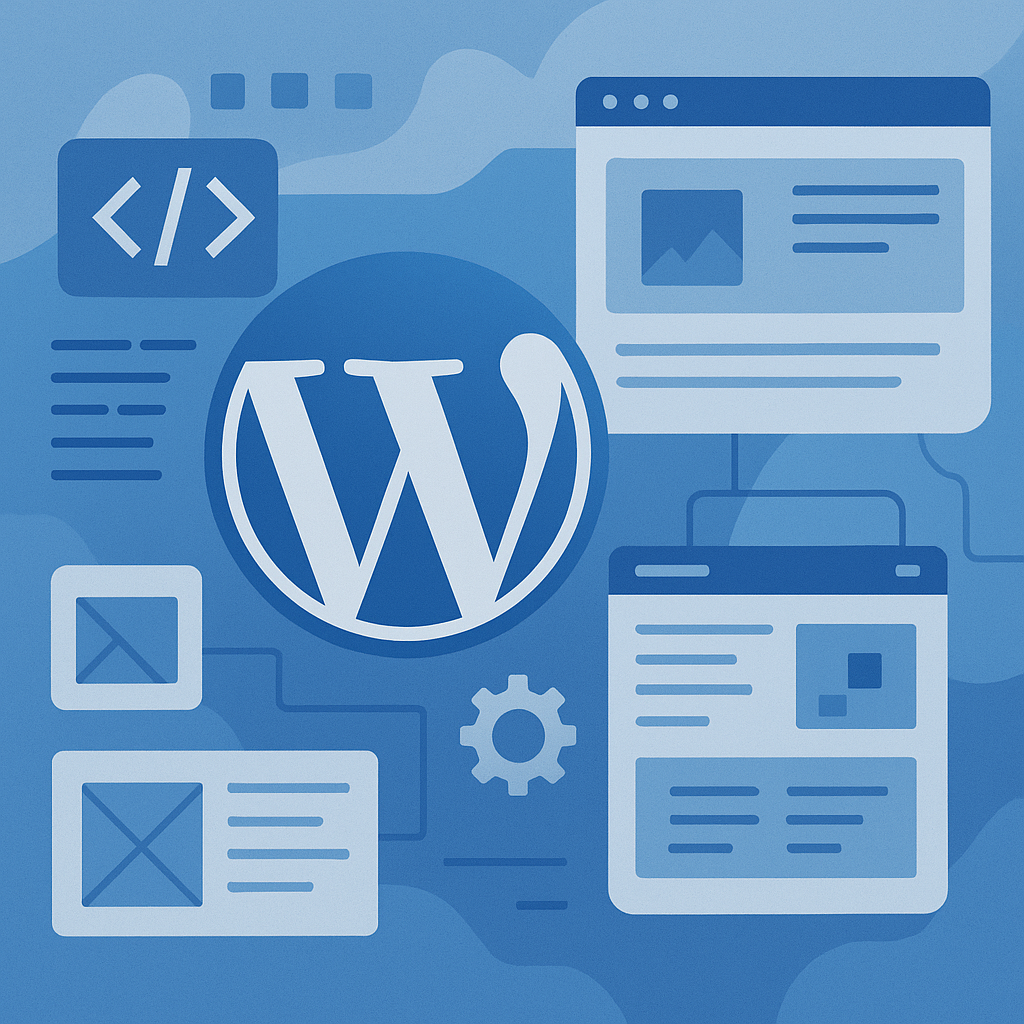WordPress is not just a blogging platform; it’s a robust content management system (CMS) that powers over 40% of the websites on the internet. When businesses invest in smart WordPress and web solutions, they are essentially tailoring the web’s most popular CMS to meet their exact needs. For a growing company, an off-the-shelf theme or plugin can only go so far. To stand out in a crowded digital landscape you need a site that reflects your brand identity, streamlines operations and scales with you. Smart solutions go beyond aesthetics — they fuse design, functionality, marketing and automation into a unified digital strategy. Whether you run a local shop, a membership community or a global e-commerce store, crafting a custom experience shows customers that you care about their journey.
A smart build starts with solid foundations. Use a lightweight, well-maintained theme or create a child theme to safely override styles and functions without risking future updates. Custom themes let you control every pixel, ensuring your site looks polished on desktop and mobile. For dynamic features, build or commission bespoke plugins instead of piling on third-party extensions that slow down your site. A custom plugin can handle a specific business need like calculating shipping rates, managing event registrations or creating a tailored booking workflow. By keeping your code lean and tailored, you avoid bloated features you don’t need and reduce security risks from abandoned plugins. A modular approach also makes future changes easier because you know exactly how each component works.
Integration is where a WordPress site becomes a true business hub. Instead of manually copying data between systems, connect your forms, storefront and membership areas to CRMs, marketing platforms and payment gateways via secure APIs. For instance, your contact form can feed leads directly into HubSpot or Salesforce, triggering follow-up sequences. WooCommerce orders can sync with your inventory management software so stock levels stay accurate in real time. Appointment bookings might update your calendar and send meeting invites automatically. Automations built with tools like Zapier or custom webhook handlers reduce repetitive tasks, improve accuracy and free up your team for higher-value work. When data flows seamlessly across systems you get a holistic view of your customer journey and can make smarter decisions.
Smart web solutions prioritize performance and security from day one. A slow site not only frustrates visitors but also hurts your search rankings. Optimize performance by compressing images, lazy loading media, minifying CSS and JavaScript files and leveraging browser caching and content delivery networks (CDNs). Conduct regular audits to identify plugins or scripts that slow down page load times. Security is equally important. Keep WordPress core, themes and plugins up to date, enforce strong passwords and two-factor authentication and install a reputable security plugin to monitor suspicious activity. Back up your site daily and test your disaster recovery plan. Implement HTTPS everywhere and limit login attempts to deter brute-force attacks. By proactively addressing performance and security you build trust with your visitors and safeguard your business.
Artificial intelligence and machine learning can elevate a WordPress site into a smart digital assistant. AI-powered chatbots built with platforms like Dialogflow or ChatGPT can handle pre-sales questions, schedule appointments, offer product recommendations and even troubleshoot common issues around the clock. Recommendation engines analyze user behavior to suggest content, products or services that increase engagement and conversion rates. Natural language processing can summarize blog posts or generate SEO-friendly meta descriptions automatically. Image recognition tools can tag photos for accessibility and search. These capabilities are no longer reserved for big companies; cloud-based APIs make it affordable to integrate AI into smaller sites. By automating routine interactions, AI frees up human staff for high-touch tasks while delivering a personalized experience for every visitor.
To continuously improve your website, you need data. Built-in analytics tools like Google Analytics or Matomo provide traffic insights, but smart sites go further. Use heatmaps to see where users click and scroll, and session recordings to identify friction points. Implement structured data (schema markup) so search engines understand your content and feature your site in rich snippets. Run A/B tests on headlines, page layouts and call-to-action buttons using tools like Google Optimize to find what resonates most with your audience. Set up goal tracking for sign-ups, purchases and other conversions, and tie that data back to your marketing campaigns. Regularly reviewing analytics helps you refine your content strategy, optimize funnels and allocate resources where they have the greatest impact.
Ultimately, developing smart WordPress and web solutions is an iterative process. Start by outlining your business goals and the user journeys that support them, then translate those into technical requirements. Work with experienced developers who understand both WordPress best practices and broader web standards, and ensure each feature you add has a clear purpose. Keep your site lean, secure and fast, integrate it with the tools that power your business and embrace automation and AI where it makes sense. By treating your website as a living system rather than a static brochure, you’ll create a platform that adapts to changing needs, delivers measurable results and grows alongside your business.
Start by choosing a lightweight theme and enhancing it with custom blocks or child themes. Use plugins like WooCommerce for e‑commerce, then connect them to your CRM so new orders trigger emails and updates. Consider adding AI chatbots or recommendation engines to improve conversion and customer satisfaction.
Performance and security matter, too. Optimize images, enable caching and keep your software up to date. Regularly review analytics and A/B test pages to understand how visitors behave. By building smart WordPress solutions, you’ll deliver better experiences and free up time to focus on growth.
